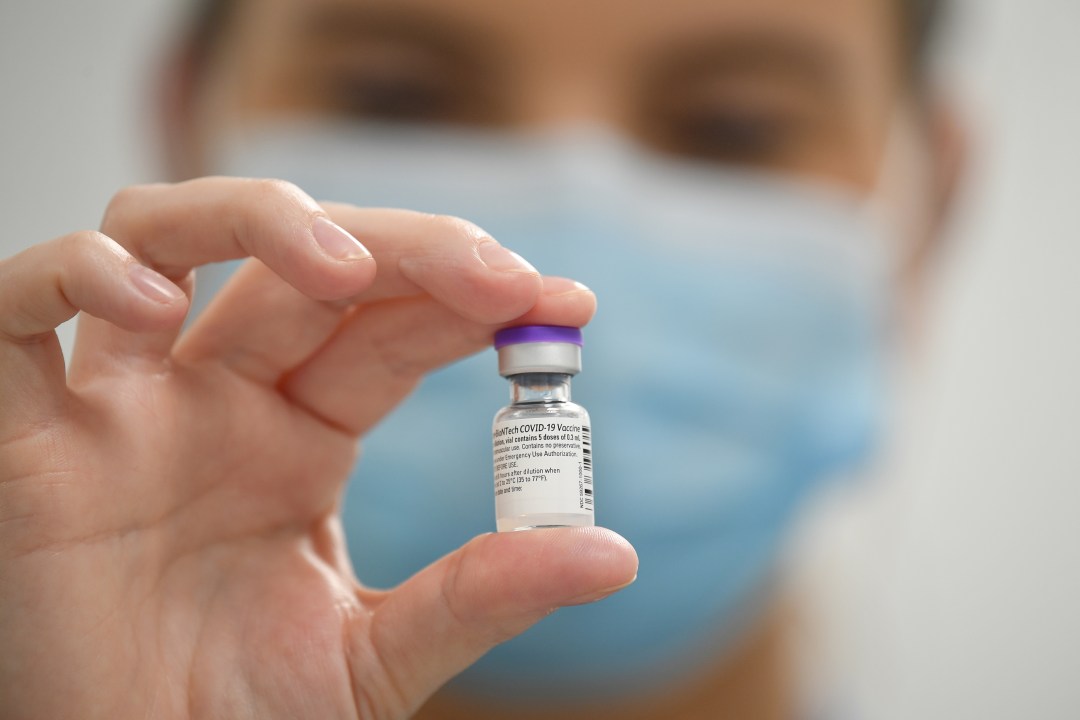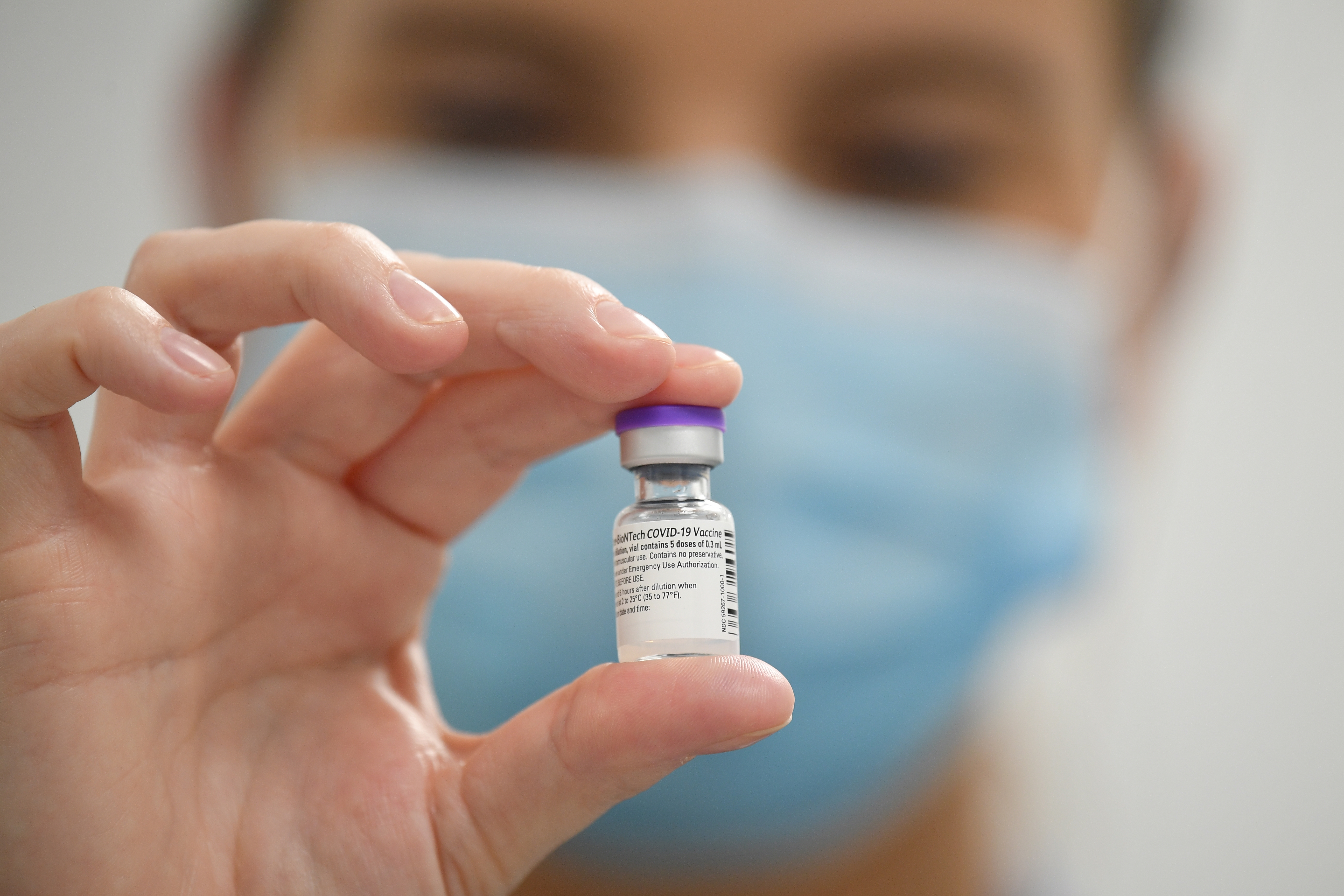We still await good data on the transmissibility of the Indian variants of Sars-CoV-2, something the government insists is vital as to whether the full reopening of the economy and society can go ahead as planned on 21 June. But we do now have some data on efficacy of the Pfizer and AstraZeneca vaccines against the Indian variant B.1.617.2 – whose triple mutation las led to worries that it might be able to sidestep the vaccines. A study lead by Public Health England finds that while the efficacy of both vaccines is slightly lower for the Indian variant compared with the Kent variant, the difference is not great.
While the efficacy of the AstraZeneca vaccine is good, the Pfizer vaccine is more effective still
Two doses of the Pfizer vaccine, it finds, prevent 88 per cent of symptomatic cases of the Indian variant and 93 per cent of symptomatic cases of the Kent variant. Two doses of AstraZeneca prevent 60 per cent of cases of the Indian variant and 66 per cent of cases of the Kent variant. The study also looked at the protective effect three weeks after a single dose. Pfizer was found to prevent 33 per cent of cases of the Indian variant and 49 per cent of cases of Kent variant. For AstraZeneca the corresponding figures were 33 per cent and 50 per cent. These figures are all for symptomatic cases; the study didn’t measure the effectiveness of vaccines in preventing hospitalisations and deaths – although we know from previous trials that both vaccines are more effective still at preventing serious cases than they are at preventing mild cases.
There are, as ever, some caveats. The study has yet to be peer-reviewed. It involves a far smaller number of cases of the Indian variant (1,054) than the Kent variant (11,621). There are demographic differences between those who caught the Kent variant and those who caught the Indian variant: of the former group, 48 per cent were male and 3.3 per cent were of Asian heritage; of the latter, 55 per cent were male and 26 per cent of Asian heritage.
Nevertheless, the study does appear to indicate three things. Firstly, that there is little reason to worry about the Indian variant escaping the two vaccines which account for most of the vaccination programme in Britain. Secondly, that two doses of these vaccines are a lot better than one. And thirdly – as has already been indicated by just about every trial and study so far – that while the efficacy of the AstraZeneca vaccine is good, the Pfizer vaccine is more effective still. The Public Health England study makes the suggestion that the efficacy rate of AstraZeneca might be lower because that vaccine takes a little longer to produce its protective effect – but the difference in efficacy rate between it and Pfizer is really quite marked.
AstraZeneca has allowed Britain to get a head start in vaccination, but this data, combined with the risk of blood clots from AstraZeneca – which according to the MHRA had cost 56 lives up until 12 May – suggests that the government should now be thinking of phasing it out in favour of Pfizer and the other mRNA vaccine, Moderna.








Comments